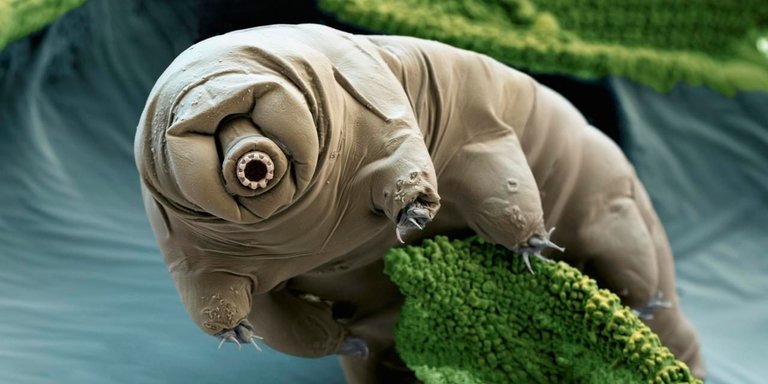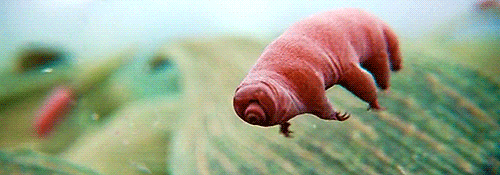
Scientists are just starting to understand the tardigrade. It can survive boiling water, outer space, and extreme radiation.
This funny looking little guy can survive boiling hot water, outer space, and decades without food or water. It's called a "tardigrade" or "water bear". It's just one of many aquatic invertebrates on the planet, but it's unlike any other life form that scientists know of.
Less than a millimeter in size, it can be found almost anywhere. The secret to its hardiness is a process called "cryptobiosis". The tardigrade releases almost all of its body water and turns into a shrunken little ball called a "tun". It can remain motionless this way for decades.

Astronauts left tardigrades unprotected in outer space for weeks. Radiation and lack of oxygen couldn't kill them. Tardigrades can also survive extreme pressure. They can withstand pressure 6x as great as the Mariana Trench. Scientists have found tardigrades frozen in ice for 30 years. When the ice melted, the tardigrades started swimming around.
Their radiation threshold is 1,000x that of humans. Researchers are even using tardigrade protein to help humans withstand more X-ray radiation.
Tardigrades have survived all four mass extinctions. Scientists say they will survive many more until the sun envelops the Earth, in about 4 billion years.
Tardigrades have been known to survive the following extreme conditions:
temperatures as low as -200 °C (-328 °F) and as high as 151 °C (304 °F);
freezing and/or thawing processes;
changes in salinity;
lack of oxygen;
lack of water;
levels of X-ray radiation 1000x the lethal human dose;
some noxious chemicals;
boiling alcohol;
low pressure of a vacuum;
high pressure (up to 6x the pressure of the deepest part of the ocean).
Hi! I am a robot. I just upvoted you! I found similar content that readers might be interested in:
http://www.businessinsider.com/tardigrades-facts-water-bear-science-outer-space-2017-10